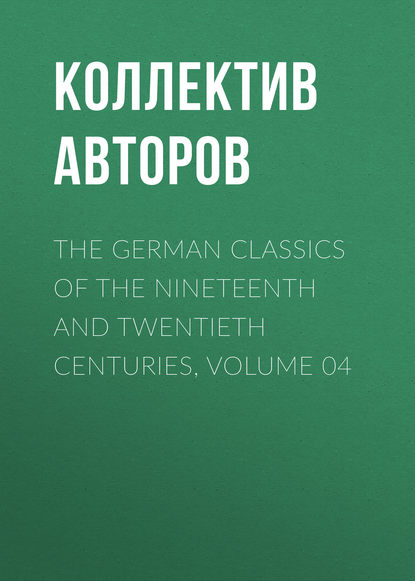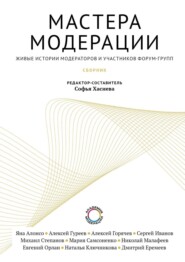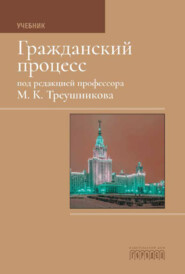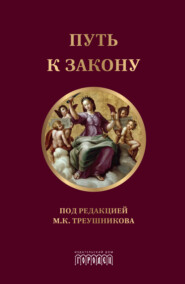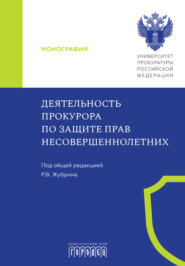По всем вопросам обращайтесь на: info@litportal.ru
(©) 2003-2024.
✖
The German Classics of the Nineteenth and Twentieth Centuries, Volume 04
Настройки чтения
Размер шрифта
Высота строк
Поля
Inoculation with death, also, will not be wanting in some future universal therapy.
The idea of a perfect health is interesting only in a scientific point of view. Sickness is necessary to individualization.
If God could be man, he can also be stone, plant, animal, element, and perhaps, in this way, there is a continuous redemption in Nature.
Life is a disease of the spirit, a passionate activity. Rest is the peculiar property of the spirit. From the spirit comes gravitation.
As nothing can be free, so, too, nothing can be forced, but spirit.
A space-filling individual is a body; a time-filling individual is a soul.
It should be inquired whether Nature has not essentially changed with the progress of culture.
All activity ceases when knowledge comes. The state of knowing is eudæmonism, blest repose of contemplation, heavenly quietism.
Miracles, as contradictions of Nature, are amathematical. But there are no miracles in this sense. What we so term, is intelligible precisely by means of mathematics; for nothing is miraculous to mathematics.
In music, mathematics appears formally, as revelation, as creative idealism. All enjoyment is musical, consequently mathematical. The highest life is mathematics.
There may be mathematicians of the first magnitude who cannot cipher.
One can be a great cipherer without a conception of mathematics.
Instinct is genius in Paradise, before the period of self-abstraction (self-recognition).
The fate which oppresses us is the sluggishness of our spirit. By enlargement and cultivation of our activity, we change ourselves into fate. Everything appears to stream in upon us, because we do not stream out. We are negative, because we choose to be so; the more positive we become, the more negative will the world around us be, until, at last, there is no more negative, and we are all in all. God wills gods.
All power appears only in transition. Permanent power is stuff.
Every act of introversion—every glance into our interior—is at the same time ascension, going up to heaven, a glance at the veritable outward.
Only so far as a man is happily married to himself, is he fit for married life and family life, generally.
One must never confess that one loves one's self. The secret of this confession is the life-principle of the only true and eternal love.
We conceive God as personal, just as we conceive ourselves personal.
God is just as personal and as individual as we are; for what we call I is not our true I, but only its off glance.
HYMN TO NIGHT (1800)
By NOVALIS
TRANSLATED BY PAUL B. THOMAS
Who, that hath life and the gift of perception, loves not more than all the marvels seen far and wide in the space about him Light, the all-gladdening, with its colors, with its beams and its waves, its mild omnipresence as the arousing day? The giant world of restless stars breathes it, as were it the innermost soul of life, and lightly floats in its azure flood; the stone breathes it, sparkling and ever at rest, and the dreamy, drinking plant, and the savage, ardent, manifold-fashioned beast; but above all the glorious stranger with the thoughtful eyes, the airy step, and the lightly-closed, melodious lips. Like a king of terrestrial nature it calls every power to countless transformations, it forms and dissolves innumerable alliances and surrounds every earthly creature with its heavenly effulgence. Its presence alone reveals the marvelous splendor of the realms of the world.
Downward I turn my eyes to Night, the holy, ineffable, mysterious. Far below lies the world, sunk in a deep vault; void and lonely is its place. Deep melancholy is wafted through the chords of the breast. In drops of dew I'd fain sink down and mingle with the ashes. Far-off memories, desires of youth, dreams of childhood, long life's brief joys and vain hopes appear in gray garments like the evening mist after sunset. Light has pitched its gay tents in other regions. Will it perchance never return to its children, who are waiting for it with the faith of innocence?
What is it that suddenly wells up so forebodingly from beneath the heart and smothers the gentle breath of melancholy? Dark Night, dost thou also take pleasure in us? What hast thou beneath thy mantle which touches my soul with invisible force? Precious balsam drops from the bunch of poppies in thy hand. Thou raisest up the heavy wings of the soul; vaguely and inexpressibly we feel ourselves moved. Joyously fearful, I see an earnest face, which gently and reverently bends over me, and amid endlessly entangled locks shows the sweet youth of the mother. How poor and childish does Light seem to me now! How joyful and blessed the departure of day! Only for that reason, then, because Night turns thy servants from thee, didst thou scatter in the wide expanse of space the shining stars, to make known thine omnipotence and thy return, during the periods of thine absence? More heavenly than those twinkling stars seem to us the everlasting eyes which Night has opened within us. Farther they see than the palest of those numberless hosts; not needing light, they fathom the depths of a loving heart, filling a higher space with unspeakable delight.
Praise be to the queen of the world, to the high harbinger of holy worlds, to the fostress of blissful love! She sends thee to me, gentle sweetheart, lovely sun of the night. Now I am awake, for I am thine and mine; thou hast proclaimed to me that night is life and made a man of me. Consume my body with spiritual fire, that I may ethereally blend with thee, and then the bridal night may last forever.
"THOUGH NONE THY NAME SHOULD CHERISH"[34 - Translator: Charles Wharton Stork. From Spiritual Songs (1799).]
Though none Thy Name should cherish,
My faith shall be the same,
Lest gratitude should perish
And earth be brought to shame.
With meekness Thou did'st suffer
The pangs of death for me,
With joy then I would offer
This heart for aye to Thee.
I weep with strong emotion
That death has been Thy lot,
And yet that Thy devotion
Thy people have forgot.
The blessings of salvation
Thy perfect love has won,
Yet who in any nation
Regards what Thou hast done 3
With love Thou hast protected
Each man his whole life through;
Though all Thy care rejected,
No less would'st Thou be true.
Such love as Thine must vanquish
The proudest soul at last,
'Twill turn to Thee in anguish
And to Thy knees cling fast.
Thine influence hath bound me;
Oh, if it be Thy will,
Be evermore around me,
Be present with me still!
At length too shall the others
Look up and long for rest,
And all my loving brothers
Shall sink upon Thy breast.
TO THE VIRGIN[35 - Translator: Charles Wharton Stork. From Spiritual Songs (1799).]
A thousand hands, devoutly tender,
Have sought thy beauty to express,
But none, oh Mary, none can render,
As my soul sees, thy loveliness.
I gaze till earth's confusion fadeth
The idea of a perfect health is interesting only in a scientific point of view. Sickness is necessary to individualization.
If God could be man, he can also be stone, plant, animal, element, and perhaps, in this way, there is a continuous redemption in Nature.
Life is a disease of the spirit, a passionate activity. Rest is the peculiar property of the spirit. From the spirit comes gravitation.
As nothing can be free, so, too, nothing can be forced, but spirit.
A space-filling individual is a body; a time-filling individual is a soul.
It should be inquired whether Nature has not essentially changed with the progress of culture.
All activity ceases when knowledge comes. The state of knowing is eudæmonism, blest repose of contemplation, heavenly quietism.
Miracles, as contradictions of Nature, are amathematical. But there are no miracles in this sense. What we so term, is intelligible precisely by means of mathematics; for nothing is miraculous to mathematics.
In music, mathematics appears formally, as revelation, as creative idealism. All enjoyment is musical, consequently mathematical. The highest life is mathematics.
There may be mathematicians of the first magnitude who cannot cipher.
One can be a great cipherer without a conception of mathematics.
Instinct is genius in Paradise, before the period of self-abstraction (self-recognition).
The fate which oppresses us is the sluggishness of our spirit. By enlargement and cultivation of our activity, we change ourselves into fate. Everything appears to stream in upon us, because we do not stream out. We are negative, because we choose to be so; the more positive we become, the more negative will the world around us be, until, at last, there is no more negative, and we are all in all. God wills gods.
All power appears only in transition. Permanent power is stuff.
Every act of introversion—every glance into our interior—is at the same time ascension, going up to heaven, a glance at the veritable outward.
Only so far as a man is happily married to himself, is he fit for married life and family life, generally.
One must never confess that one loves one's self. The secret of this confession is the life-principle of the only true and eternal love.
We conceive God as personal, just as we conceive ourselves personal.
God is just as personal and as individual as we are; for what we call I is not our true I, but only its off glance.
HYMN TO NIGHT (1800)
By NOVALIS
TRANSLATED BY PAUL B. THOMAS
Who, that hath life and the gift of perception, loves not more than all the marvels seen far and wide in the space about him Light, the all-gladdening, with its colors, with its beams and its waves, its mild omnipresence as the arousing day? The giant world of restless stars breathes it, as were it the innermost soul of life, and lightly floats in its azure flood; the stone breathes it, sparkling and ever at rest, and the dreamy, drinking plant, and the savage, ardent, manifold-fashioned beast; but above all the glorious stranger with the thoughtful eyes, the airy step, and the lightly-closed, melodious lips. Like a king of terrestrial nature it calls every power to countless transformations, it forms and dissolves innumerable alliances and surrounds every earthly creature with its heavenly effulgence. Its presence alone reveals the marvelous splendor of the realms of the world.
Downward I turn my eyes to Night, the holy, ineffable, mysterious. Far below lies the world, sunk in a deep vault; void and lonely is its place. Deep melancholy is wafted through the chords of the breast. In drops of dew I'd fain sink down and mingle with the ashes. Far-off memories, desires of youth, dreams of childhood, long life's brief joys and vain hopes appear in gray garments like the evening mist after sunset. Light has pitched its gay tents in other regions. Will it perchance never return to its children, who are waiting for it with the faith of innocence?
What is it that suddenly wells up so forebodingly from beneath the heart and smothers the gentle breath of melancholy? Dark Night, dost thou also take pleasure in us? What hast thou beneath thy mantle which touches my soul with invisible force? Precious balsam drops from the bunch of poppies in thy hand. Thou raisest up the heavy wings of the soul; vaguely and inexpressibly we feel ourselves moved. Joyously fearful, I see an earnest face, which gently and reverently bends over me, and amid endlessly entangled locks shows the sweet youth of the mother. How poor and childish does Light seem to me now! How joyful and blessed the departure of day! Only for that reason, then, because Night turns thy servants from thee, didst thou scatter in the wide expanse of space the shining stars, to make known thine omnipotence and thy return, during the periods of thine absence? More heavenly than those twinkling stars seem to us the everlasting eyes which Night has opened within us. Farther they see than the palest of those numberless hosts; not needing light, they fathom the depths of a loving heart, filling a higher space with unspeakable delight.
Praise be to the queen of the world, to the high harbinger of holy worlds, to the fostress of blissful love! She sends thee to me, gentle sweetheart, lovely sun of the night. Now I am awake, for I am thine and mine; thou hast proclaimed to me that night is life and made a man of me. Consume my body with spiritual fire, that I may ethereally blend with thee, and then the bridal night may last forever.
"THOUGH NONE THY NAME SHOULD CHERISH"[34 - Translator: Charles Wharton Stork. From Spiritual Songs (1799).]
Though none Thy Name should cherish,
My faith shall be the same,
Lest gratitude should perish
And earth be brought to shame.
With meekness Thou did'st suffer
The pangs of death for me,
With joy then I would offer
This heart for aye to Thee.
I weep with strong emotion
That death has been Thy lot,
And yet that Thy devotion
Thy people have forgot.
The blessings of salvation
Thy perfect love has won,
Yet who in any nation
Regards what Thou hast done 3
With love Thou hast protected
Each man his whole life through;
Though all Thy care rejected,
No less would'st Thou be true.
Such love as Thine must vanquish
The proudest soul at last,
'Twill turn to Thee in anguish
And to Thy knees cling fast.
Thine influence hath bound me;
Oh, if it be Thy will,
Be evermore around me,
Be present with me still!
At length too shall the others
Look up and long for rest,
And all my loving brothers
Shall sink upon Thy breast.
TO THE VIRGIN[35 - Translator: Charles Wharton Stork. From Spiritual Songs (1799).]
A thousand hands, devoutly tender,
Have sought thy beauty to express,
But none, oh Mary, none can render,
As my soul sees, thy loveliness.
I gaze till earth's confusion fadeth





